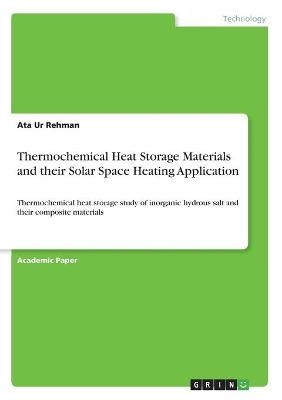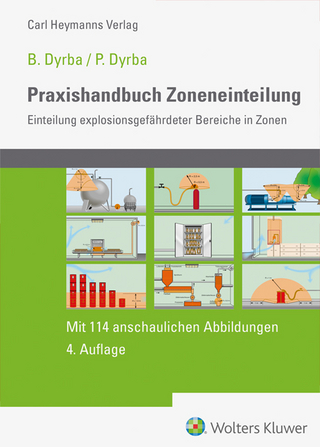
Thermochemical Heat Storage Materials and their Solar Space Heating Application
Thermochemical heat storage study of inorganic hydrous salt and their composite materials
Seiten
2020
GRIN Verlag
978-3-346-16989-1 (ISBN)
GRIN Verlag
978-3-346-16989-1 (ISBN)
- Titel nicht im Sortiment
- Artikel merken
Academic Paper from the year 2020 in the subject Engineering - Chemical Engineering, grade: 1, Northwest University (Department of Chemical Engineering), course: Energy storage, language: English, abstract: Thermochemical heat storage materials offer high-energy storage densities and clean means of long-term solar energy storage. The aim of the study is to assess the potential heat storage efficiency of salt hydrates, based on sufficient hydration/dehydration performance, water sorption and cyclicability. MgSO4-7H2O, ZnSO4-7H2O and FeSO4-7H2O were evaluate based on preselected criteria. The main highlights of the dehydration result show that higher enthalpy was obtained for MgSO4 and ZnSO4, shows 2256 J g-1 and 1731 J g-1 enthalpy, respectively. During hydration process, six water molecules were absorbing by MgSO4 and ZnSO4 after pre-dehydrated temperature 150 °C and 120 °C, respectively. The cycle stability of MgSO4 and ZnSO4 showed better performance which give rise 1210 g-1 and 1155 J g-1 enthalpy, respectively. It was expected that FeSO4 would show higher cyclicability due to their higher enthalpy (1400 J g-1) in the first round; however, overhydration does not permit it to released larger energy. The impact of relative humidity on water sorption performance and rate of hydration were reported which showed that MgSO4 and ZnSO4 can uptake maximum water under 85 and 75 % relative humidity. Ongoing studies and the booming progress of ZnSO4-7H2O illustrate that likewise MgSO4-7H2O, it is also the potential candidate and can be use in thermochemical heat storage devices. To bring zinc sulfate heptahydrate into market, more detail studies in fields of evaluation of advanced materials and development of efficient and compact prototypes are still required. ZnSO4·7H2O is modified by impregnation method with zeolite matrices (13X-zeolite and LTA-zeolite) to improve its hydration performance. Water sorption ability of composites was carried out in a constant temperature & humidity environment. Composite of ZnSO4/13X-zeolite showed highest water sorption (0.26 g/g) at 75% relative humidity under 45 °C air temperature, which is double than pure ZnSO4·7H2O. This is due to larger surface area (491 m2 g-1) and pore volume (0.31 cm3). Based on the results, the hydration behavior of MZ9 reveals an ideal thermochemical heat storage candidate for thermal storage devices.
| Erscheinungsdatum | 13.06.2020 |
|---|---|
| Zusatzinfo | 23 Farbabb. |
| Sprache | englisch |
| Maße | 148 x 210 mm |
| Gewicht | 101 g |
| Themenwelt | Technik |
| Schlagworte | application • Heat • Heating • Materials • Solar • space • Storage • thermochemical |
| ISBN-10 | 3-346-16989-8 / 3346169898 |
| ISBN-13 | 978-3-346-16989-1 / 9783346169891 |
| Zustand | Neuware |
| Informationen gemäß Produktsicherheitsverordnung (GPSR) | |
| Haben Sie eine Frage zum Produkt? |
Mehr entdecken
aus dem Bereich
aus dem Bereich
mit Berechnungshinweisen und Beispielen
Buch | Hardcover (2024)
Reguvis Fachmedien (Verlag)
56,00 €
Lern- und Arbeitsbuch (mit digitalem Training zum Downloaden)
Buch (2024)
SecuMedia (Verlag)
29,90 €


